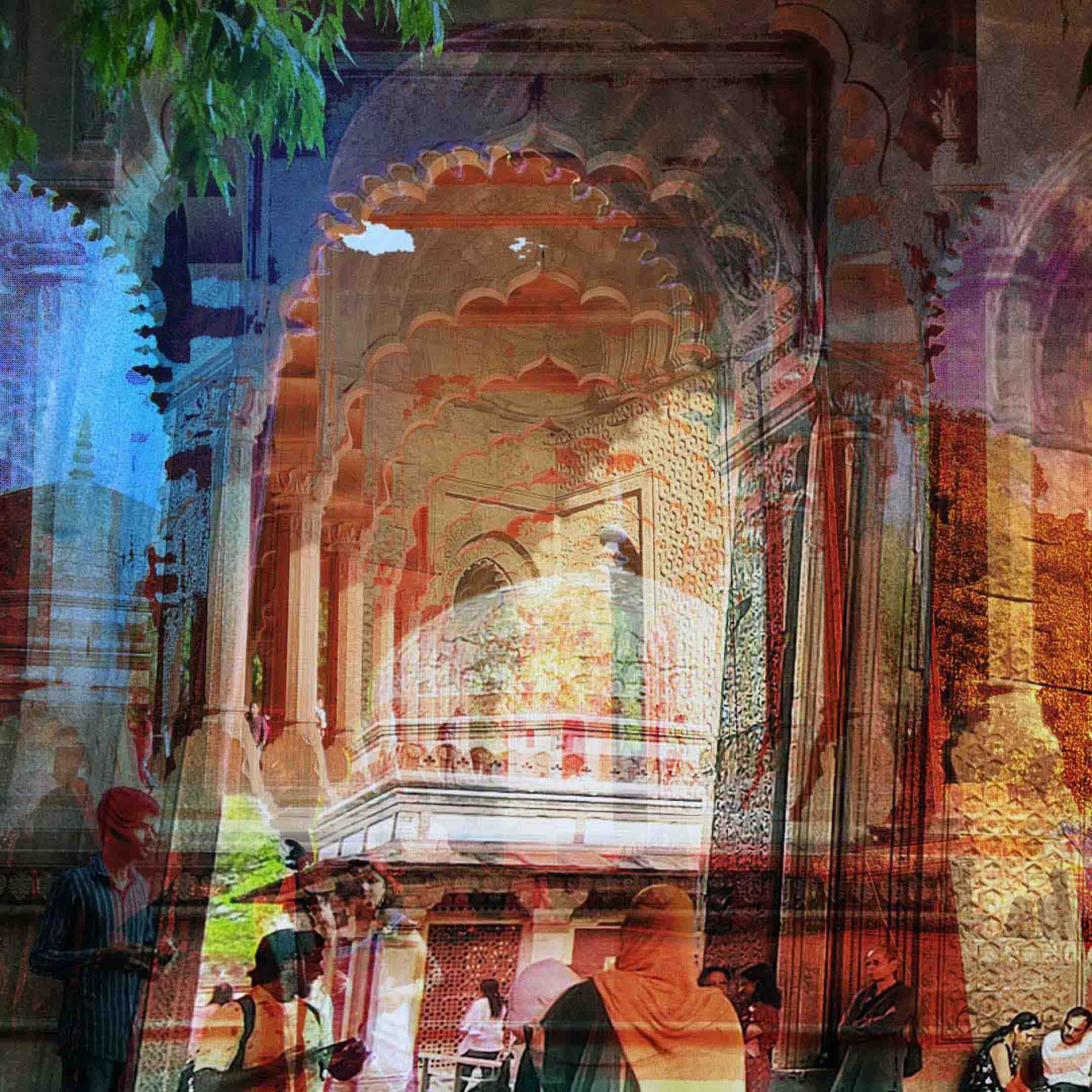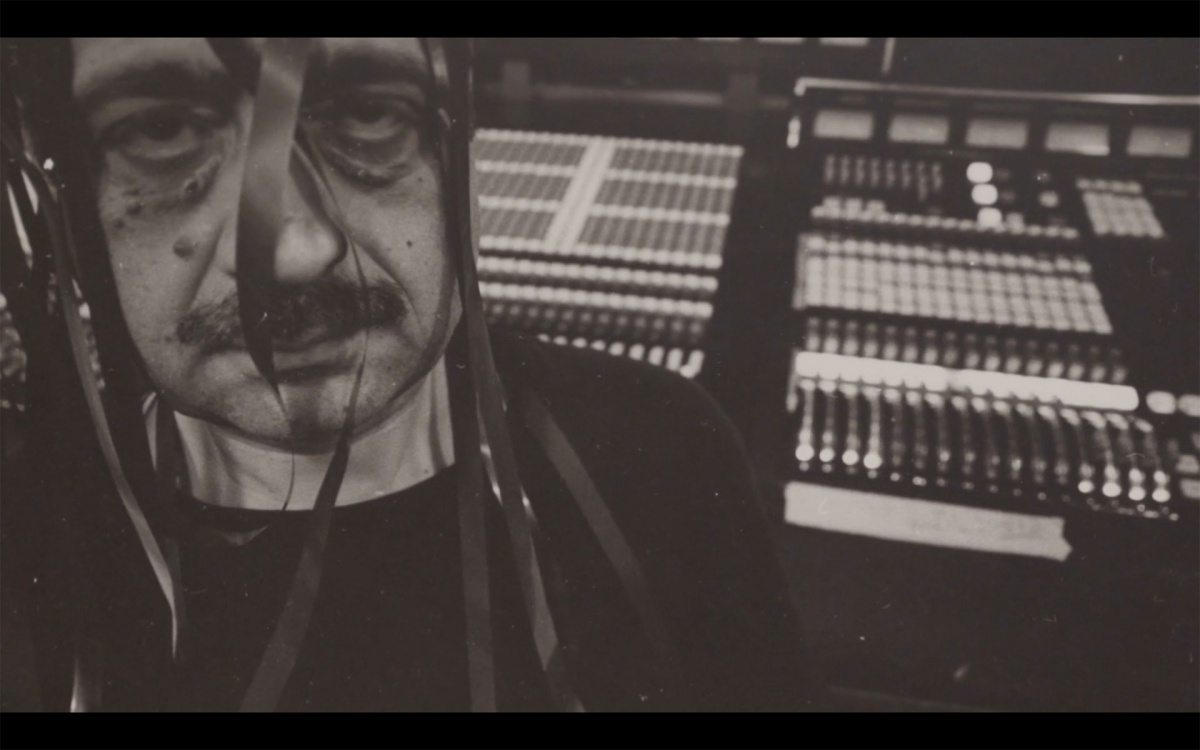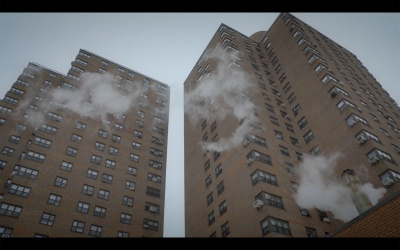erase_Raise
Since the past few years, the Indian Central Board of Secondary Education, a key body responsible for setting up the educational curriculums for schools in the country, has been censoring significant content from its syllabus about citizenship, communal violence, anti-caste and feminist movements, and more recently important chunks of the Mughal and Sultanate period histories. This sound collage offers a glimpse into this contemporary crisis in which the artist has decided to intervene.
For Norient City Sounds: Delhi, Smita shares an audio trailer, a sound collage of excerpts from an audio-visual game that she is designing and developing, in an attempt to reconstruct erased narratives and facilitate a participatory engagement with these censored histories.1 The excerpts that have been chosen refer to architectural spaces and monuments from the Mughal and Sultanate era that are situated in Delhi. Red Fort, Qutub Minar, Humayun’s Tomb, and many more monuments that are scattered all around the city are heritage spaces visited by throngs of people everyday. The erasure and reappropriation of historical content about these places from school textbooks leaves a gaping hole in the public imagination of the nation’s civilizational past and subsequently its future.
This is where Smita, a visual artist, intervenes. As an educator herself, she is working on developing an interactive and performative game format based on the classic board game Ludo, in which the stories of these sites return with fervor. Narratives of these architectural wonders, their construction, purpose, the empires and dynasties that they constituted, along with fables and myths surrounding them – all of this gets reactivated during the gameplay with her narrations.
As a part of her ongoing research into the (re)making of this repository of chapters from deleted history textbook chapters, she has been speaking with historians, poets, artists, scholars, and other contributors to populate the many perspectives that make up the heritage of Delhi. Amongst the key interlocutors are the people of the city themselves, who share their own stories, facts, questions, interpretations, and knowledge to problematize the question of history and to keep a public dialogue going.
The significance of the oral aspect of her work is shared in the form of these collaged excerpts that are put together to evoke a sense of urgency around the contemporary crisis in the city today, where heritage is being demolished and histories are being invented. At the same time, her approach is focused on continuing to «raise» questions, concerns, and curiosities through modes of speech, dialogue, and sustained engagement with young and old alike.
At the heritage sites, she plays prototypes of the game with enthusiastic visitors and collects recordings of her discussions with them. These sound documents are embedded with architectural resonances, ambient atmospheres, and the sonic habitus of these historic sites. They are woven alongside dialogues with historian, activist, and heritage conservationist Sohail Hashmi and found fragments from news coverage. The layered recordings and sonic atmospheres of these spaces are replete with wonder, murmurs, speculations by visitors, sounds of construction, birds, animals, and the life that inhabits these sites. We also keep returning to the question of language – the diverse sounds of which have been intrinsic to the vibe of this city. Listening to these sites, one hears a thick cloud of resonances that seem to raise the question – can histories, voices, experiences, dissent, and a spirit of inquiry ever really be erased?
- 1. The Delhi Sultanate was a late medieval empire based in Delhi that stretched over large parts of the Indian subcontinent from the 13th to 16th centuries. The Mughal Empire was an early modern empire based in South Asia between the 16th and 19th centuries.
Audio recording by Neelansh Mittra, sound editing by Suvani Suri. This sound collage is part of the virtual exhibition «Norient City Sounds: Delhi», curated and edited by Suvani Suri.
Project Assistance: Geetanjali Kalta
Graphics/Visual Design: Upendra Vaddadi, Neelansh Mittra
Audio Production: Abhishek Mathur
Video Production: Ammar
Biography
Shop

Published on September 29, 2023
Last updated on February 21, 2024
Topics
Why New Yorks’ underground doesn’t give a fuck about Trump or why satirical rap in Pakistan can be life threatening.
From political music in the GDR, the trouble of punk musicians in China and the dangerous life of kurdish folk singers in Turkey.
Special
Snap



